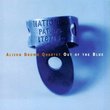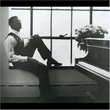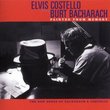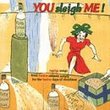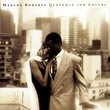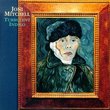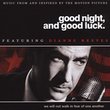| All Artists: Various Artists Title: Washington Square Memoirs: The Great Urban Folk Boom Members Wishing: 5 Total Copies: 0 Label: Rhino / Wea Release Date: 6/5/2001 Album Type: Box set Genres: Country, Blues, Folk, Jazz, Pop, Rock, Classic Rock Styles: Cowboy, Classic Country, Contemporary Blues, Traditional Blues, Acoustic Blues, Traditional Folk, Contemporary Folk, Folk Rock, Country Rock, Psychedelic Rock Number of Discs: 3 SwapaCD Credits: 3 UPC: 081227426422 |
Search - Various Artists :: Washington Square Memoirs: The Great Urban Folk Boom
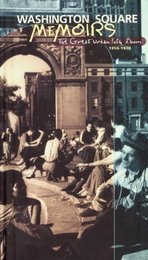 | Various Artists Washington Square Memoirs: The Great Urban Folk Boom Genres: Country, Blues, Folk, Jazz, Pop, Rock, Classic Rock
It was distinctly ironic: at the very zenith of America's postwar space-age love affair with TV, 3-D, and rock & roll (and other disposable cultural ephemera), a grassroots movement set out to recapture the country'... more » |
Larger Image |
CD DetailsSynopsis
Amazon.com It was distinctly ironic: at the very zenith of America's postwar space-age love affair with TV, 3-D, and rock & roll (and other disposable cultural ephemera), a grassroots movement set out to recapture the country's lost musical heritage. These curious minds not only found it in a wealth of seemingly forgotten protest songs, spiritual blues, and country laments, but also forged new songs in its image. That this crusade sprang from lower Manhattan's Washington Square and the doorstep of New York University made the paradox all the sweeter. Ted Myers, the producer of this triple-disc anthology, grew up just blocks from the epicenter of that folk-quake, and his generous sense of place and time permeates this rich collection. Generally misunderstood and historically pigeonholed, the era finally gets its due, chronicled here by 72 tracks that extend far beyond the roots-conscious work of Woody Guthrie, the Weavers, Ramblin' Jack Elliott, and Pete Seeger on one hand, and the more popular material by the Kingston Trio, Limeliters, Joan Baez, and Bob Dylan on the other. Culturally, the Folk movement was the alt-rock of its day--if eminently more conscious of history and politically committed. Musically, it encompassed an ethos that enthusiastically blurred the boundaries between blues, Appalachian ballads, jug music, pure country, honky-tonk, work songs, and even unbridled novelty; this set explores them all, often with a palpable sense of discovery. Historically, the movement championed preservation at the same time it gleefully tweaked old sensibilities in pursuit of new inspiration. Listen and you'll hear music that became touchstones for artists as diverse as the Byrds, Roberta Flack, Rod Stewart, and--wittingly or not--every passionate coffeehouse minstrel who's strode on stage with a guitar ever since. --Jerry McCulley Similarly Requested CDs
|
CD ReviewsBoomer nostalgia trip 07/07/2001 (5 out of 5 stars) "I can't write about this CD in the third person as the other reviewers have because many of the songs bring up vivid memories of the singers and other events happening at the time that were related to those songs. I'm listening to this CD at work, and I would have gotten through all three CDs if I didn't keep repeating some of the songs endlessly. As one who owned about half of these songs on LP, if I were to create a CD with representative songs of the era, many of the same songs would be on it.Some of my all time favoritesongs are included like "Pack up your sorrows," "Thirsty boots," and "I can't help but wonder where I'm bound." These are on CDs I've already bought, but it is still great to have them all in one place. Other's enter my CD collection for the first time. Finally "Reason to believe," "Suzanne," "Hard Traveling," "Euphoria," "Sing and turn Jubilee" and "The motorcycle song" can be played in the car.If you are new to this music or this era, this is just a sampling. Some of these artists you will probably want in more depth. When they play "Cod'ine," I want to run home to also hear Buffy Sainte-Marie sing "Pineywood hills" and "Until it's time for me to go." But start here, it's a great introduction. It's hard for me to listen to "Four strong winds" without also hearing "Early morning rain," but if you've never heard Ian & Sylvia, this is one of the two best songs to start with.If you grew up/old with this music too, how can you resist?" A Satisfying Compendium Edward Aycock | New York, NY United States | 07/20/2001 (4 out of 5 stars) "About 6 years ago, I bought Rhino's "Troubadours of the Folk Era" CD's. They introduced me to many folk singers whom I now know intimately. Taking that one better, Rhino now has this 3 CD set with pictures, liner notes and personal essays. Buyer beware, if you do have the Troubadours CD's, you may be disappointed to learn that many of the same recordings do pop up here. The good news is that there is a wealth of other material here to select from. Joni Mitchell is explained as not appearing due to licensing restrictions in this collection, yet oddly, she appeared on the Troubadour series. Conversely, Dylan appears here although he was not on Troubadours. The times are a'changin' I guess. I do have some minor quibbles with the material selected... "There but for Fortune" is not, in my opinion, the best Joan Baez choice for this collection, as it was released later in the 60's and doesn't have as much of that Washington Square flavor as say, "We Shall Overcome" or any of her broadside ballads do. Also, why do they select "Codine" from Buffy Sainte Marie, which is one of the hardest songs of hers to appreciate at first listening? Also, with lesser known artists such as Judy henske whose older material is NOT available on CD, why do we have "High Flying Bird" yet again, as on Troubadours? It's an amazing song, but for those of us starved for Henske, another selection would have been adequate.That said, this is still worth having, for its historical impact and musical pleasure. Enjoy!" Best folk revival anthology ever!! David R. Delvizo | San Francisco, CA United States | 11/09/2001 (5 out of 5 stars) "Since CDs started predominating the form in which music is available to the consumer, there have been many folk reissues. But this one is by far, the best collection of reissues I've seen or heard. It's only problem -- if it's even a problem -- is that after you've listened to all 72 tracks, you're left wanting more. The sound quality too is excellent. Go for it!"
|

 Track Listings (27) - Disc #1
Track Listings (27) - Disc #1